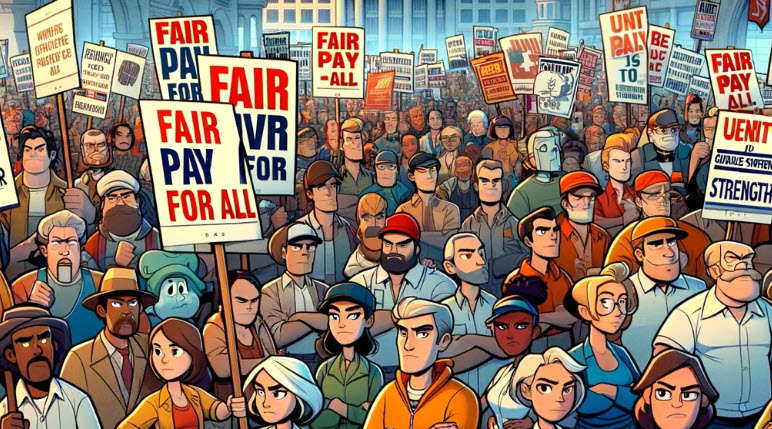Hundreds of fast-food workers in California are joining forces to establish a unique union, marking an unprecedented development that could potentially alter the labor relations inside the industry. The California Fast Food Workers Union is an unique effort that unites employees from prominent franchises such as McDonald’s, Pizza Hut, and Subway. In order to participate, members must contribute a monthly fee of $20. California holds the distinction of being the leading state in the United States when it comes to the fast-food industry, with over half a million people employed in this sector, surpassing all other states in terms of employment numbers.
A Blueprint for Transformation
Union’s Ambitious Objectives Strengthening Worker Rights: The recently established union is not solely focused on creating commotion; it possesses a distinct mission to enhance and invigorate the fast-food industry. The primary focus is the proposal to increase the minimum wage by 3.5% over the next three years. In addition, the union is also establishing measures to enhance safeguards against unfair dismissals and guaranteeing that working hours are adequate for employees to get a livable salary. This strategic maneuver has the potential to significantly alter the dynamics of a sector that has hitherto been biased towards employers.
Revolutionizing the Fast-Food Industry
Expanding Beyond Traditional Service Counters This unionization effort extends beyond mere salary increases; it aims to cultivate a more expansive movement advocating for respect and equity inside the fast-food sector, which has long been associated with low wages and suboptimal working environments. Although significant labor unions are common in many areas, the fast-food industry has mainly remained an exception. Nevertheless, California is experiencing a shift in its circumstances, as recent legislative victories are creating opportunities for substantial advancements. Legislation enacted last year requires fast-food restaurants with more than 60 establishments across the country to increase their minimum wage to a minimum of $20 per hour by April, a significant increase from the current rate of $15.50.
The Broader Perspective
Navigating the future of the fast food industry Enhancing labor rights on a larger scale: The establishment of the California Fast Food Workers Union has the potential to be a pivotal moment, not only for the state but also for the entire nation. This movement aims to replicate the same level of momentum shown in the automotive and entertainment sectors, where workers effectively utilized their collective power to achieve improved agreements. Its objective is to apply this inspiration to the fast-food industry. However, the pursuit of enhanced remuneration and working conditions is not devoid of obstacles. Detractors contend that increased wages could potentially result in higher menu pricing or incentivize chains to adopt greater automation in order to mitigate expenses. More than 50% of restaurant operators have already begun implementing automation, such as Chipotle’s robots that cook tortillas. This has sparked a growing debate about the optimal balance between human labor and machines.
The establishment of the California Fast Food Workers Union represents a significant point in the continuous conversation between labor and management, as the fast-food industry confronts these developments. This exemplifies the influence of collaborative efforts and the persistent pursuit of equitable treatment in professional settings. It will be intriguing to observe how this movement influences the future of fast food, not only in California but throughout the entire nation.
Stay up to date on other relevant news in our “News and Politics” section.





